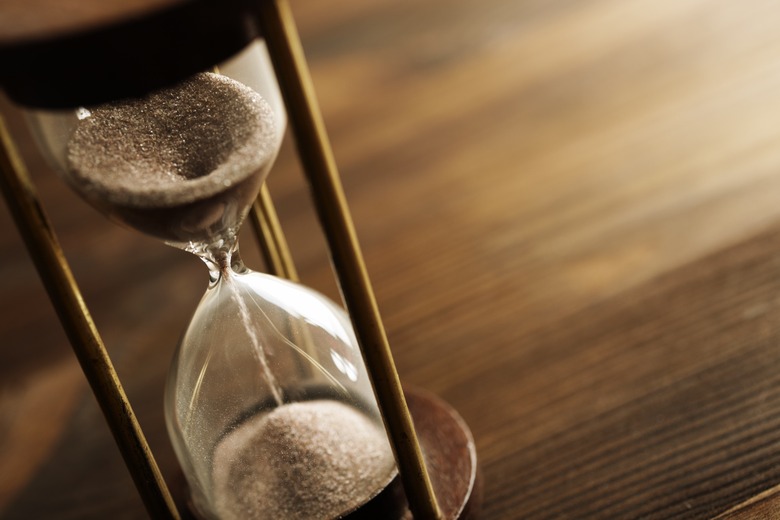Healthspanners And Immortalists: A Philosophy Of Longevity
This is one in a series of stories; visit The Daily Meal Special Report: The Quest for Longevity (and What Food Has to Do With It) for more.
My Uncle Phil, who drank himself into his mid-60s before his liver gave out, always claimed that he wasn't much interested in longevity. "Whoever said," he'd ask rhetorically as he sipped his eighth or ninth lunchtime Scotch and water, "that the point of life was to make it last as long as possible?"
This brings to mind the old joke about the man whose doctor tells him that he has to stop smoking, drinking, eating rich foods, and having sex. "If I give up all that," the man asks, "will I live a lot longer?" "Probably not," the doctor replies, "but it will seem a lot longer."
In an article this spring in The New Yorker called "Silicon Valley's Quest to Live Forever" — which was basically about how all those billionaire titans of the digital universe don't see why they should have to actually, you know, die, considering their dazzling disruptive genius — the writer Tad Friend divided longevity scientists into two groups:
healthspanners, whose ideal (I paraphrase) is a healthy life snuffed out quickly and painlessly after a good long run, and immortalists, who think we (or at least they) ought to be able to pretty much live forever. (Friend further separated the latter category into two factions, the Meat Puppets, who "believe that we can retool our biology and remain in our bodies," and the RoboCops, who "believe that we'll eventually merge with mechanical bodies and/or with the cloud" — the latter only slightly sillier, I'd venture, than the former.)
Immortal is a funny word when you stop to think about it, deriving from the joining of the Latin prefix im ("un-") with the Latin noun mortalis ("mortal," in the sense of a mortal being) — which of course is in turn derived from mortem, death.. It's more or less a synonym for not human, in other words. If you're immortal, then, you're not really one of us.
Ever since it first dawned on the human mind that human bodies apparently didn't last forever, though, people have been desperately looking for the loophole. Well, yeah, the lights might go out and the body turn to compost, but surely our spirits would survive, finding new homes in a cat, a tree, an Egyptian princess — maybe even in Shirley MacLaine. Or else we'd ascend to the heavenly realm where we would indeed live forever, even though we were, paradoxically, dead. Or on a more interventionist level, maybe if we drank enough of that mercury-and-honey cocktail the mixologist down at the alchemist's shop was brewing up we could actually stay around in more or less the same form. Or maybe if we sold our soul to the....
Of the possibility of reincarnation or heavenly repose, both of them widely held as religious tenets around the world, the best that can be said is that, well, maybe — I guess we'll find out if and when we get there. On the subject of alchemical elixirs, there's no need to equivocate: They didn't work, and were quite possibly poisonous to boot (see "heavenly realm"). And that selling-the-soul stuff never seems to work out too well in the end.
Ultimately, I think we just have to face it: Death and taxes. And I just got a letter from the IRS.
If death is inevitable, then, as the smart money certainly says it is, what about keeping it at bay for a while longer? That we can talk about. Average life expectancy worldwide increased about seven years for men and 10 years for women between 1990 and 2013. If it were to keep going at that rate indefinitely....
But it won't. Methuselah lived 900 years, according to Ira Gershwin (and 969 according to Genesis 5:27), but the oldest documented human being in modern times was Jeanne Calment, a Frenchwoman who died at the age of 122 in 1997 — and researchers believe that the absolute limit for human life is probably 125. Different researchers believe that it might be possible for a human being to run as fast as 40 miles an hour (Usain Bolt manages about 28). Needless to say, the chances of you or me achieving either milestone are mighty slim.
Does that mean we shouldn't try — at least for the 125 years thing? Well, no, I guess not. Eating right, exercising, avoiding tobacco and non-prescription opioids and too much alcohol — all those things you've been being told to do since you were old enough to care — are probably well worth trying. At least in moderation. At least as long as they don't turn our lives into existential scut work, an anhedonic slog.
It would be nice to think that we can just keep going, but of course we can't. We know what's coming. We can rage or pray or turn to crackpot remedies or feed ourselves reassuring fantasies about post-cryogenic resurrection or downloading our spirits into cyberspace, but it isn't going to do any good.
Through his haze of Cutty Sark, Uncle Phil had a point. Maybe we should consider the possibility that longevity isn't everything. Maybe we should consider the possibility that — as they used to say in those old commercials for Winston cigarettes (speaking of things we're supposed to avoid) — it's not how long you make it, it's how you make it long.
